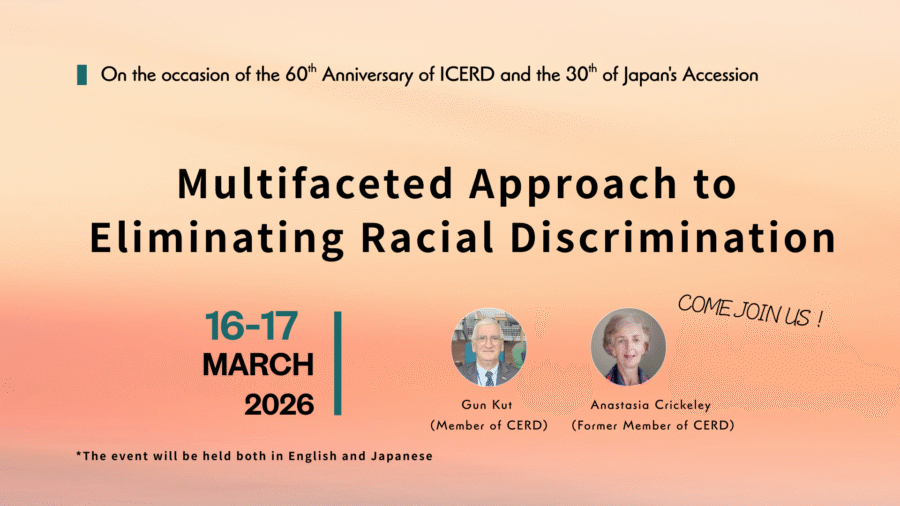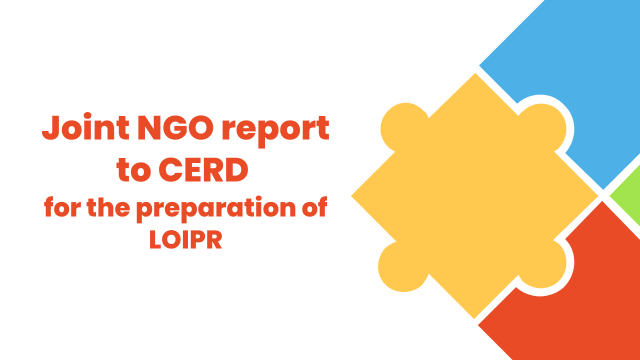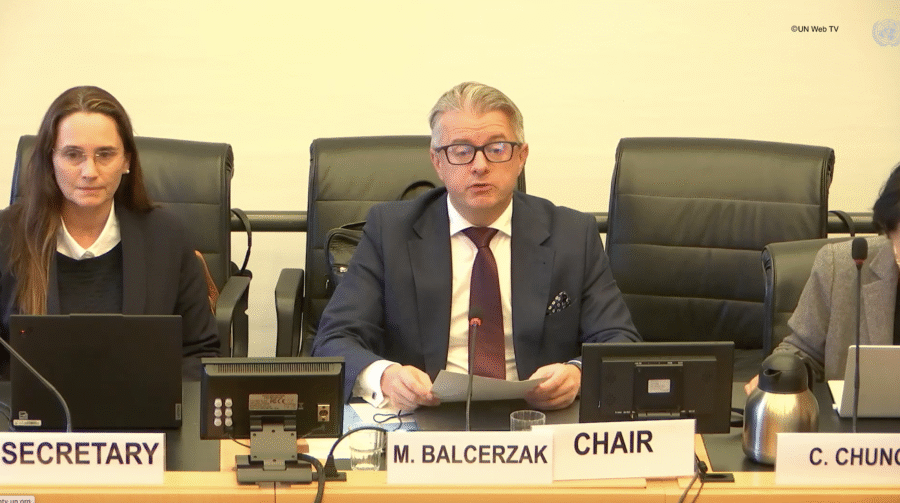Joint Statement – As the UN anti-racism committee starts its 100th session, NGOs celebrate achievements and stress enormous challenges ahead
November 25, 2019
Joint Statement
As the UN anti-racism committee starts its 100th session, NGOs celebrate achievements and stress enormous challenges ahead
Geneva, Switzerland. 25 November 2019 – As the UN Committee on the Elimination of Racial Discrimination (CERD) begins its 100th session today, the International Institute on Race, Equality and Human Rights (Race & Equality), the International Movement Against All Forms of Discrimination and Racism (IMADR) and Minority Rights Group International (MRG) recall that this Committee has set key milestones for the fight against racism and racial discrimination across the world, and yet stress the enormous challenges in realizing the ambition of the International Convention on the Elimination of All Forms of Racial Discrimination (ICERD).
The Committee on the Elimination of Racial Discrimination was the very first treaty body to be established, in application of Article 8 of the ICERD, and the only one existing for its first 7 years. As such, when the Committee gathered for its very first session in January 1970, to review the situation in Brazil and Niger, it had to set precedents, establish working methods and rules of procedure at the service of its mission. These foundational first sessions served as a blueprint for the work of all future treaty bodies, including the Human Rights Committee that commenced in 1977, the Committee on Economic, Social and Cultural Rights in 1980, and the Committee on the Elimination of Discrimination against Women in 1982.
Since that first session, the Committee has held over 1200 periodic reviews of the situation of racial discrimination in 164 states, addressed dozens of thousands of recommendations for States parties to bring their legislation, policies and practices in line with the ICERD.
The Committee has also considerably expanded the scope of its work and proven to be a key guardian of the rights of marginalized groups, including people of African descent, Roma, indigenous peoples, minorities, persons discriminated on the basis of caste or descent, non-citizens and migrants. The Committee has elaborated on their rights and state obligations through thirty-five General Recommendations. Some of them have also addressed specific forms of racial discrimination such as racist hate speech, and have looked at multiple and intersecting forms of discrimination based on gender and belonging to the aforementioned groups. We welcome the Committee’s work on a new General Recommendation No.36 on “preventing and combating racial profiling”. These General Recommendations provide authoritative interpretation of States parties’ obligations under the ICERD, and concrete guidance for them to implement the Convention.
Through its Early-Warning Measures and Urgent Procedures, a unique tool among treaty bodies, the Committee has taken actions to prevent systematic oppression from escalating into conflicts and grave violations of human rights of racialized communities. Since 2003, the Committee has adopted 22 decisions; made five statements; and addressed 165 letters to States parties; and two letters to regional institutions.[1] This 100th session should be an opportunity to reaffirm the Committee’s demonstrated commitment to the prevention of mass human rights violations against indigenous peoples, minorities, migrants and other groups and individuals the Convention seeks to protect.
We welcome the Committee’s long-standing commitment to cooperate with civil society, including with persons experiencing racial discrimination, in order to bring the goal and spirit of the Convention into reality. The 2010 decision to hold informal meetings with NGOs prior to the dialogues with States parties has significantly expanded the civil society space at the Committee.[2] Moreover, the Committee’s global consultation with civil society in 2016 reaffirmed the importance of partnership with and contributions of civil society in implementing the Convention.[3] Many of the recommendations from the consultation remain valid today such as to protect human rights defenders from reprisals and increase the Committee’s outreach to civil society. We encourage the Committee to continue strengthening its cooperation with civil society in order to bring the system closer to the ground which is key for full implementation of the Convention.
Not only does the 100th session provide a moment for reflection, but also the opportunity to recognize issues that the Committee will encounter throughout the next decades. Much remains to be done before the promise of the ICERD to “eliminate all forms of racial discrimination” becomes a reality. People of African descent, indigenous peoples, minorities, migrants, groups facing caste- or descent-based discrimination continue to be marginalized and excluded on all continents, to face discrimination impeding the full enjoyment of their civil and political rights on an equal basis with others, and to confront distinct barriers in their access to education, work, health and housing, and in their right to an adequate standard of living. These continuing issues can be further impacted by a number of contemporary challenges such as new and emerging technologies, increasing migratory flows due to forced displacement and greater mobility, and counter-terrorism measures, captured in the thematic discussion held by the CERD in 2017[4].
The Committee – as the first treaty body – has been a pioneer, and it should remain so. It should play a spearheading role in applying the Convention to present-day challenges including the impacts of climate change and business on human rights, and intersections of racism and racial discrimination with other grounds of discrimination such as religion or belief, age, disability, sexual orientation and gender identity.
[1] www.ohchr.org/EN/HRBodies/CERD/Pages/EarlyWarningProcedure.aspx
[2] A/65/18, para.87
[3] https://www.ohchr.org/EN/HRBodies/CERD/Pages/ConsultationwithCivilSocietyNov2016.aspx
[4] https://tbinternet.ohchr.org/_layouts/15/treatybodyexternal/Download.aspx?symbolno=CERD/C/SR.2600&Lang=en





